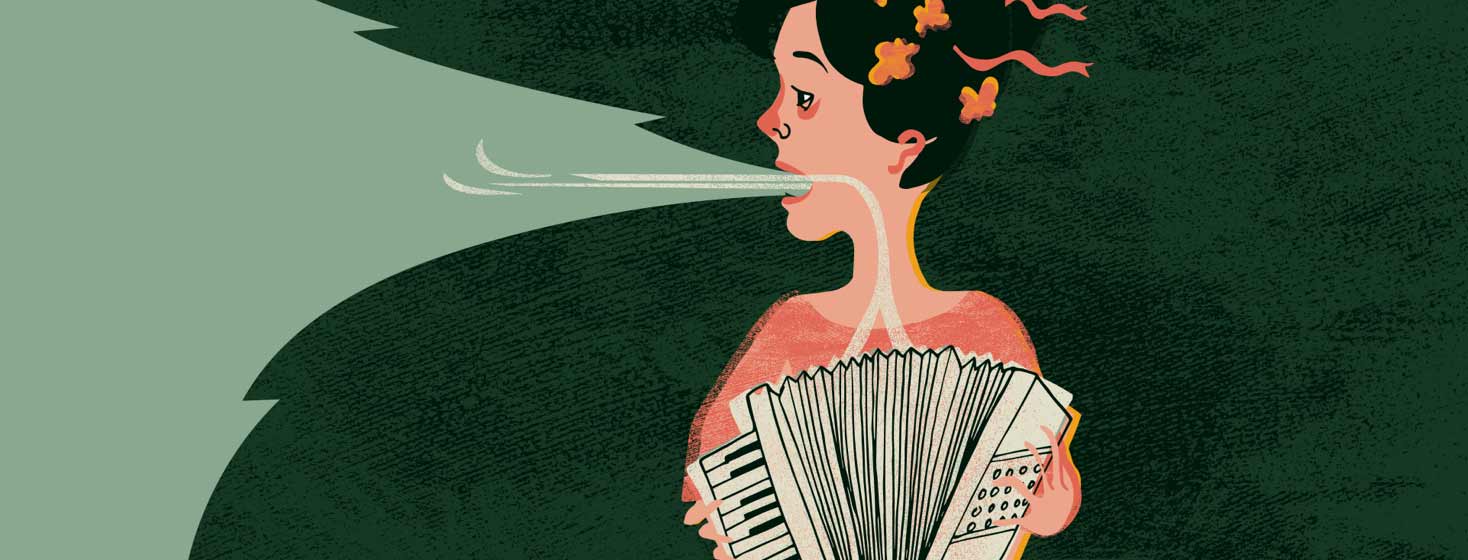Let’s Discuss Lung Sounds
Our lungs produce various sounds. What sounds they make depends on what is going on inside your lungs. So, I figured it's time to have a discussion about lung sounds. What are they? What do they mean? Here’s what to know.
Doctors listen to lung sounds using a device called a stethoscope. This device is needed to hear most lung sounds. Although, in some instances, lung sounds may be heard audibly, or without the aid of the stethoscope. That said, here are some of the most common lung sounds.
Wheezing
Inside your lungs are various passages or airways for the air to follow. Air and oxygen travel down these airways to air exchange units called alveoli. As you get deeper and deeper into your lungs these airways get narrower and narrower. Your largest airway is your trachea, and your smallest airways are called bronchioles. Some disease conditions may cause obstructions that impede the flow of air through these airways. They make the airways narrow. And a wheeze is the sound air makes as it passes through narrowed airways.
A wheeze is described as a continuous, high-pitched sound. It can be caused by any disease process that causes airways to become obstructed. This includes asthma and COPD, in which case bronchospasm and mucus obstruct airways. This may also include left heart failure, where secretions obstruct airways.
When doctors hear wheezing, they must determine if it is caused by asthma, COPD, or heart failure. This is because all these diseases have different treatments. Asthma generally produces a wheeze on expiration. However, a severe asthma attack may produce wheezing on inspiration on expiration. Heart failure usually produces wheezing on both inspiration and expiration.
If secretions sit on or near your vocal cords, this may cause an audible wheeze. This can happen with both asthma and COPD. Although, in my experience, this is often a tell-tale sign of acute pulmonary edema due to left heart failure. references in this section: 1-6
Rhonchi
It is essentially a term used for a type of wheeze. It is a wheeze that sounds coarse or like snoring. It is a wheeze that is caused by air moving through secretions. Rhonchi is described as a continuous low-pitched whistle. It can be difficult to distinguish between a wheeze and rhonchi. So, for this reason, many modern texts prefer to use the term wheeze for both. Still, it’s a term some doctors will still use, which is why I am including it here.5-7
Crackles
This is a discontinuous or intermittent sound. A good way of describing this lung sound is it sounds like Velcro being pulled apart. Another way of describing it is the sound made when you crunch hair between your fingernails.
There are two different types of crackles. These are fine inspiratory crackles and coarse crackles. Fine, inspiratory crackles occur after the alveoli collapse when you exhale, a condition called atelectasis. When you inhale, these alveoli snap or pop open. This is most likely to occur in the bases of your lungs. This lung sound is most commonly heard in COPD patients.
Another type of crackles is called coarse crackles. This is when you hear crackles on inspiration and expiration. And they are generally heard throughout your lung fields. They are caused when your lungs fill up with fluid due to mucus or pulmonary edema. They can be heard in some people with COPD. Although, they are most commonly heard in people experiencing an acute flare-up of left heart failure. In this case, the coarse crackles are caused by pulmonary edema.
Coarse crackles due to mucus may clear up with coughing. Coarse crackles due to heart failure may persist despite coughing.
Coarse crackles due to pulmonary edema may also be heard audibly. I have had patients in heart failure where you can hear the fluid rumbling through their chests as they breathe. references in this section: 5-8
Rales
It is another term to describe crackles. Some doctors may use it to describe wet crackles or the sound produced by air moving through a fluid. It is sometimes used to describe crackles caused by pulmonary edema or heart failure. It is an older term that is rarely used anymore. I am including it here because some doctors still use it.
Learning your lung sounds
Doctors often use these terms to describe lung sounds. As noted, sometimes a wheeze or crackles can be heard audibly. Although, more than likely a doctor will require the assistance of a stethoscope to hear them. What lung sounds a doctor hears can help determine how best to treat you. So, now you know about basic lung sounds.

Join the conversation